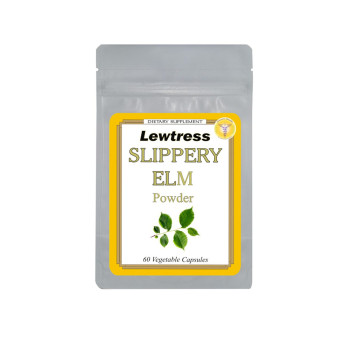Shop all Riverside Health Foods
Mixed Herbs, 50g
Country of Origin: United Kingdom
-
£1.09
- In Stock

Vegan
Mixed Herbs, 50g
Mixed herbs are a combination of dried herbs, typically including rosemary, thyme, marjoram, and parsley. These herbs are commonly found in Mediterranean and European cuisines, where they bring together a balance of savory, earthy, and herbaceous flavours. The mixture of these herbs is versatile, making it a convenient blend for a wide variety of dishes.
Each herb in the mix has its unique properties, and when combined, they create a robust flavour profile that can enhance many types of meals.
Flavour Profile of Mixed Herbs:
- Rosemary: Woody, piney, and slightly peppery with a strong, aromatic flavour.
- Thyme: Earthy, slightly lemony, and savory with a mild minty undertone.
- Marjoram: Sweet, floral, and mildly minty with a subtle spicy note, somewhat similar to oregano.
- Parsley: Fresh, green, and mildly peppery with a light herbaceous flavour that adds a subtle depth.
Together, these herbs combine to create a well-rounded mix with a slightly earthy and savory taste, with subtle citrusy and floral notes.
Common Uses for Mixed Herbs:
1. Seasoning for Meats:
- Roasted Meats: Mixed herbs are excellent for seasoning roast lamb, chicken, beef, or pork. The earthy and aromatic flavours of rosemary and thyme, combined with the milder marjoram and parsley, create a delicious seasoning for roasted or grilled meats.
- Marinades: Mixed herbs can be used in marinades for meats, adding flavour while tenderising the protein.
2. Vegetables:
- Roasted Vegetables: The blend works wonderfully with roasted or grilled vegetables like potatoes, carrots, zucchini, or eggplant, giving them a delightful savoury finish.
- Vegetable Soups & Stews: Mixed herbs can be added to vegetable soups, stews, or casseroles to enhance their flavour, especially in Mediterranean-style dishes.
3. Sauces & Dressings:
- Herb-Based Sauces: Mixed herbs are a great addition to herb-infused oils or pesto, where they can create a rich herbal base for pasta dishes or salads.
- Salad Dressings: Combine mixed herbs with olive oil, lemon juice, and a touch of mustard to create a flavorful dressing for fresh salads.
4. Soups & Broths:
- Broths: The blend is a popular addition to soups and broths, where it helps deepen the flavour of the liquid base.
- Hearty Soups: Mixed herbs are commonly used in hearty soups like minestrone, lentil soup, or vegetable broth to add herbal depth.
5. Pasta Dishes:
- Pasta Sauces: The mix of rosemary, thyme, marjoram, and parsley is perfect for enhancing the flavours of tomato-based sauces, creamy pasta dishes, or even simple olive oil and garlic pasta.
- Risottos & Grains: The herb mix can be stirred into risotto, quinoa, or couscous to add a burst of flavour.
6. Breads & Baking:
- Herb Breads: Mixed herbs can be used to flavour bread dough, particularly for focaccia, where rosemary, thyme, and marjoram work together to enhance the rustic flavour of the bread.
- Pastries & Savoury Pies: You can add mixed herbs to savoury pastries, like herb-filled turnovers or meat pies, for extra aroma and taste.
7. Mediterranean Dishes:
- Greek & Italian Recipes: Mixed herbs are often used in Greek and Italian cooking for dishes like moussaka, eggplant Parmesan, or Greek salads.
- Herbed Olive Oil: The herbs can be infused in olive oil for dipping bread or drizzling over salads and grilled meats.
8. Herbal Teas:
- While not as common, you can make a mild herbal tea using mixed herbs. The blend can have a light soothing effect, especially the marjoram and thyme, which are traditionally used to aid in digestion and relaxation.
Health Benefits of Mixed Herbs:
Digestive Aid:
- Thyme and marjoram both have carminative properties, meaning they help relieve gas, bloating, and improve digestion.
- Rosemary is traditionally used to stimulate appetite and aid in the digestion of fatty foods.
Antioxidant & Anti-inflammatory:
- The herbs in this blend contain various antioxidants, such as rosmarinic acid in rosemary and thyme, which help reduce inflammation and fight oxidative stress in the body.
Respiratory Health:
- Thyme has been used traditionally to help ease coughs and congestion due to its antibacterial and expectorant properties. It’s great in teas or broths for soothing the respiratory system.
Mood-Enhancing:
- Rosemary and marjoram are known for their mood-lifting properties, helping to reduce stress and promote relaxation. Marjoram, in particular, is used to relieve tension and support mental clarity.
Antimicrobial:
- These herbs have mild antimicrobial properties, helping to protect the body from harmful bacteria or infections
Ingredients:
Rosemary, thyme, marjoram, parsley




